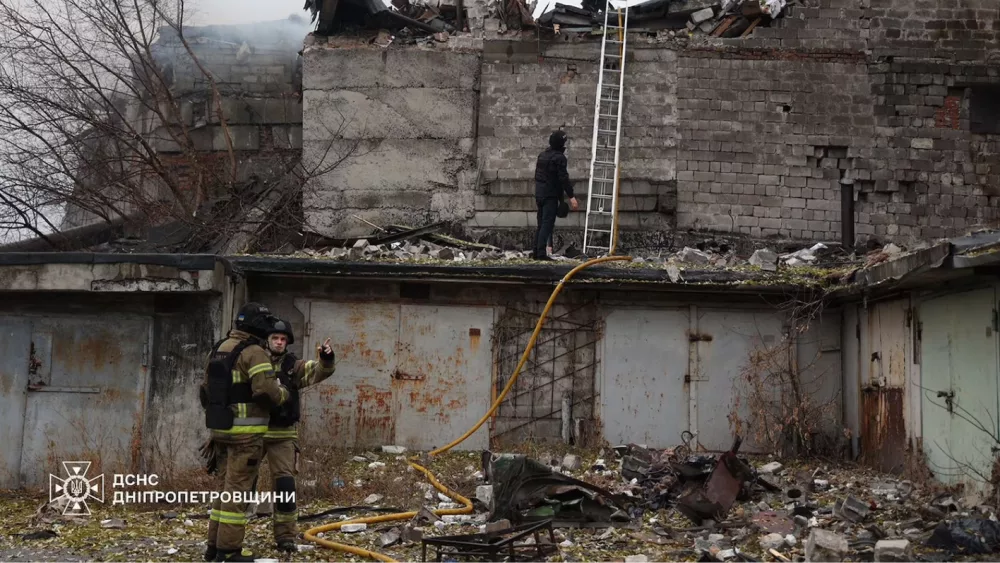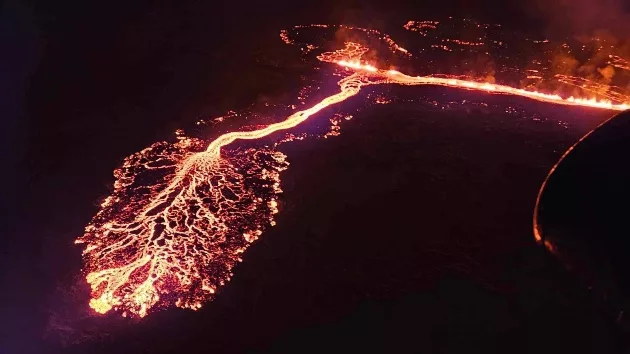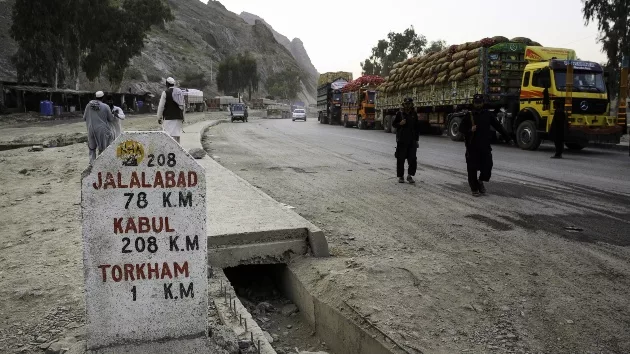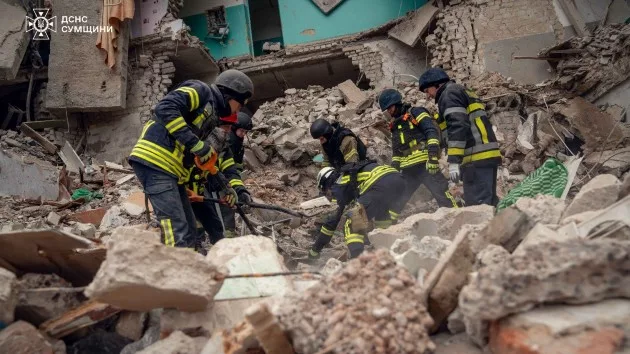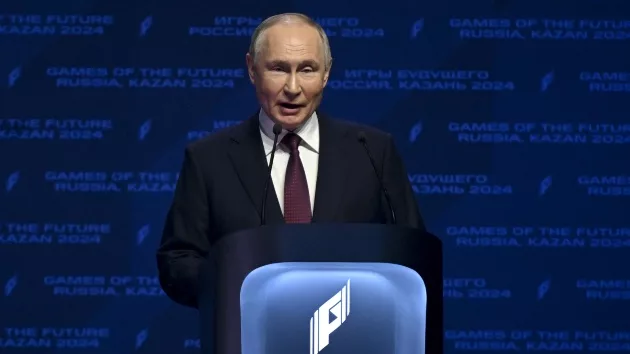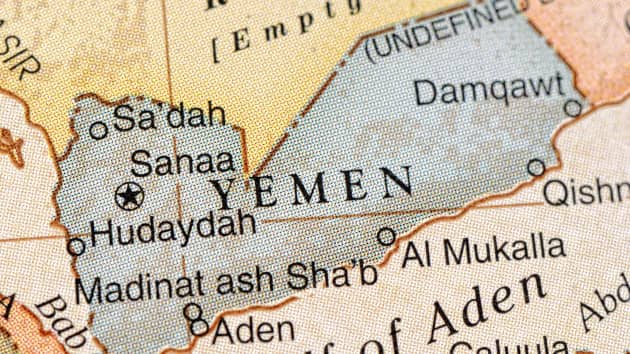
(ALGIERS, Algeria) — One of President Joe Biden’s first foreign policy moves was a pledge to help end one of the world’s worst humanitarian crises — the war in Yemen — by “stepping up our diplomacy” and “ending all American support for offensive operations in the war in Yemen, including relevant arms sales.”
More than a year later, the war has escalated — with a sharp increase in civilian casualties, a growing number of Yemenis facing hunger, with less humanitarian funding, less international oversight of airstrikes and more complex attacks against Yemen’s neighbors fighting in the conflict.
A possible new cease-fire for Islam’s holy month of Ramadan could be within reach, the United Nations special envoy for Yemen indicated Wednesday, as he promotes a new peace plan. The Saudi-led coalition announced a unilateral cease-fire starting Wednesday, days after the Houthi rebels announced their own on cross-border attacks on Saudi Arabia and the United Arab Emirates.
“I don’t want to overstate it because we’ve been here before, but there’s a chance that we actually have a path forward with the new special envoy laying out what is a credible plan,” a senior State Department official told ABC News.
Temporary cease-fires and new peace plans have come and gone for seven years now, with the Yemeni people left to suffer the consequences. Nearly 400,000 people are believed to have been killed by fighting, disease and starvation, according to a U.N. report. Over 20 million — two-thirds of the population — are now reliant on humanitarian aid, including two million children facing acute malnutrition.
“The world cannot forget about Yemen,” said Tamuna Sabadze, the country director for the International Rescue Committee, an aid group on the ground in Yemen — a country the size of California and long the Arab world’s poorest. “The suffering has continued for too long. Those with influence over the warring parties must work to deliver a diplomatic resolution to this crisis.”
The Houthis, a northern rebel group increasingly backed by Iran, swept to power in 2014 when they seized the capital, Sanaa, amid Arab Spring strife. In response, Saudi Arabia, the UAE and an Arab coalition launched a military intervention — seven years ago this past Saturday — to prop up the Yemeni government and keep from power what they saw as an Iranian proxy.
Biden brought new attention to the war early in his term, including by naming career diplomat Tim Lenderking as special envoy for Yemen. On one side, critics, including Republicans and Saudi and Emirati officials, blame increased fighting on his decision to remove the Houthis from the foreign terrorist organization list. On the other, especially among members of Biden’s own party, there have been accusations that the administration is not doing enough to pressure the Saudi-led coalition to end the war.
It’s unclear if measures prescribed by critics on either side would do just that. The last year of diplomatic efforts hasn’t.
But amid rockier ties with those Gulf Arab partners, the Biden administration is shifting toward them — redoubling support for their defense and increasing pressure on the Houthis. Secretary of State Antony Blinken met the UAE’s de facto ruler, Crown Prince of Abu Dhabi Mohammed bin Zayan, on Tuesday during a tour of the region. They spent two hours together at a private residence of MBZ, as the powerful prince is known, in Morocco — including a 30-minute one-on-one stroll around the compound.
A senior State Department official said Wednesday the two discussed “different mechanisms” to elevate U.S. support for the UAE’s security, although not an official treaty or security guarantee. But after an increasing number of deadly Houthi attacks on Saudi and Emirati civilian infrastructure, the U.S. is now considering “everything from sanctions to interdictions to other means of preventing [the Houthis] from being able to wage attacks against not just the Emiratis, but the Saudis, as well as within Yemen,” they added.
Houthi attacks have gotten increasingly sophisticated and deadly — killing civilians, striking airports and oil facilities, and using ballistic missiles and drones that are supplied by Iran. Many have come to view the militant group as a proxy force for Iran, which has taken advantage of the war to destabilize its chief rivals in the region, the Saudis and Emiratis.
One form of pressure the Emiratis and Saudis are unlikely to get, however, is re-adding the Houthis to the State Department’s foreign terrorist organization list, a designation that carries similar sanctions to those the Houthis are already under, but adds potential criminal prosecutions for anyone supporting them.
Emirati officials in particular have been lobbying for a reversal, with Biden announcing in January that one is under consideration and the State Department consistently calling Houthi attacks “terrorism.”
But even as they review re-designating the Houthis, the senior State Department official said, the administration’s argument for the last year against the designation remains — that it would restrict aid flowing into Yemen because of that threat of prosecutions.
“It’s fair to say that they [the Emiratis] and others in the region see the FTO designation in one way, whereas we see it primarily through the impact on our ability to deliver and support humanitarian assistance,” the senior State Department official told ABC News.
Still, the talk of strong support for UAE, Saudi Arabia, and others is a far cry from where some members of Biden’s own party are.
“Saudi Arabia’s airstrikes and air-and-sea blockade have cost hundreds of thousands of lives and threatened millions more with famine, triggering the worst humanitarian crisis in the world. On this grim anniversary – spanning seven years and three presidential administrations – we are calling for an immediate end to American involvement in the Saudi-led coalition’s brutal military campaign,” Sen. Bernie Sanders and three progressive House members — Pramila Jayapal, Peter DeFazio, and Ro Khanna — said, adding they will use a War Powers resolution to force his hand.
The U.S. military’s involvement in the conflict has been limited since November 2018 when, under similar bipartisan pressure, the Trump administration halted midair refueling for Saudi-led coalition aircraft. That air force has been accused by the U.N. of potential war crimes — indiscriminate bombardments and targeting civilian infrastructure.
The Houthis have also been accused of potential war crimes, including indiscriminate attacks and land mines, according to the same U.N. panel. Increasingly, they’ve also conducted complex, coordinated attacks on Saudi Arabia and UAE — including one last Friday that set two Saudi Aramco facilities ablaze and sent black smoke billowing into the air. While there were no casualties, Saudi officials said it would affect oil production amid the global energy crunch.
Fighting in recent months has been worse than in years — with January the deadliest month since 2018 — just three months after the UN Human Rights Council voted to disband that U.N. panel investigating war crimes.
While the majority of civilians have been killed by Saudi-led coalition airstrikes, the senior State Department official said the coalition “has been saying they’re prepared to engage” in negotiations towards a cease-fire and ultimately a political resolution.
The coalition on Wednesday launched a unilateral cease-fire. The U.N.’s new special envoy for Yemen, Hans Grundberg, welcomed it as part of his call for a truce for Ramadan, Islam’s holy month which starts this weekend. Grundberg has been conducting extensive consultations with not just the warring countries, but also political parties, civil society activists and women’s rights advocates.
The Gulf Cooperation Council, a Riyadh-based bloc of regional countries, is also hosting a peace conference this week of Yemeni parties.
The Houthis have rejected both the Saudi cease-fire and the GCC summit, but days earlier announced they would halt to cross-border attacks until Wednesday, refusing to extend it unless the coalition met certain demands. Those demands — ending restrictions on Yemeni ports and closure of Sanaa’s airport — were not met, but it’s unclear if the Houthis had resumed attacks.
Still, Grundberg expressed some hope Wednesday that his team was “making progress” on reaching a truce — telling the GCC summit, “Yemen needs a truce. I am engaging with the parties with a sense of urgency to reach this truce by the beginning of Ramadan.”
In the meantime, it’s the Yemeni people who suffer — a crisis now exacerbated by Russia’s war against Ukraine. Yemen imports approximately one-fifth of its wheat from the two countries, and with energy prices also soaring, the already severely underfunded humanitarian response is left reeling.
That’s left children like “Isaac” with dimmer futures. In addition to widespread malnutrition, approximately 10,000 children have been killed by the war. Some two million children are out of school, with over 25,000 schools damaged or destroyed.
Isaac, whose name has been changed to protect his identity, told the aid group Save the Children that his school “is definitely not safe anymore.” The 14-year old boy was shot by a sniper in the leg.
“I assumed the sniper would spare me when he saw I was only picking up the ball. He doesn’t usually shoot at us, he rarely does, but he did this time,” he said, according to the group.
Copyright © 2022, ABC Audio. All rights reserved.



